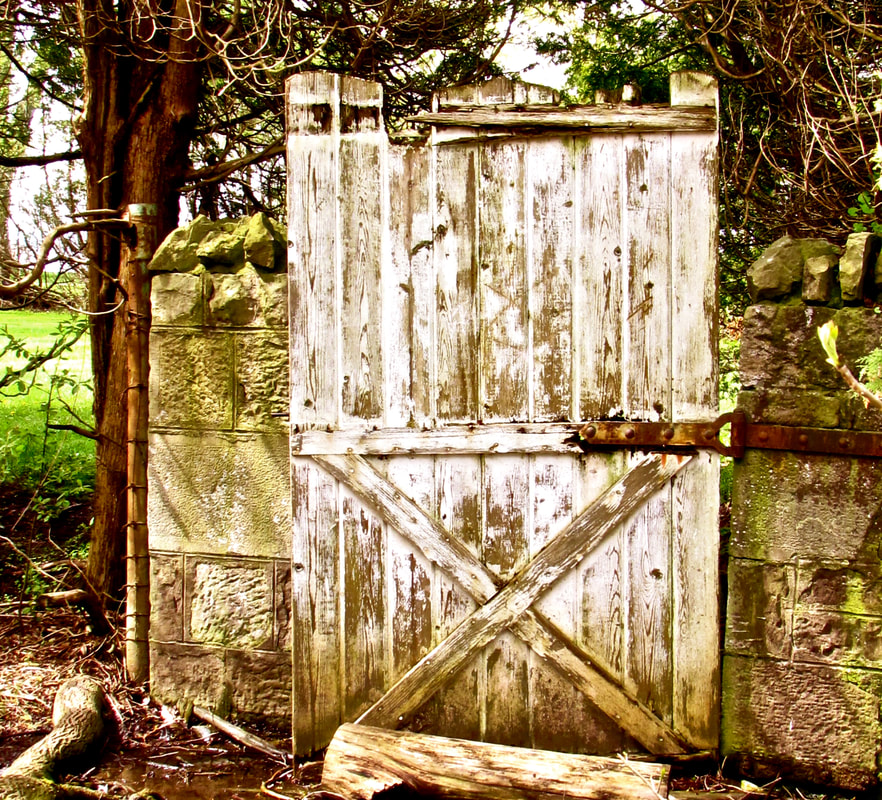 "this one's for you" glaze oil 19 x 14
"this one's for you" glaze oil 19 x 14 My father’s family was “tight”, one might say now. They loved each other full out. Dad's best friend, Norman Massey, waxed eloquent about boyhood visits to the Keeles; Norman was always made to feel both important and welcome. Grandpa Keele would visit with all in the living room and Grandma, who was quiet, made them welcome through food. Everyone in the family was musical (Grandpa played the fiddle, Aunt Ethel the piano, and the boys played clarinet or sax) and the house bounced. As young adults, the Keele kids formed a band which played all the dances in the vicinity.
Grandma Keele was the brain trust who had taught when she was young, so it was no surprise when four of five went into teaching. Although Anne taught for almost fifty years, Ethel seemed the better suited to a long teaching career, supremely gifted with brilliance, diligence, and warmth. She was beautiful too. Surprisingly, she didn't marry, breaking off a long engagement because (as she finally admitted years later) she didn’t want to leave her family.
But her family left her.
First, Roy, the eldest boy and a beginning teacher, died unexpectedly of pneumonia at the age of 24. The family photos of that period are heart-breaking. No one can even bear to look up at the camera. My aunt, arguably the most sensitive member of an already highly-attuned family, developed agoraphobia and never after was able to feel comfortable in public. At 32, she had already taught for fifteen years and even begun university after years of saving but her nervous system simply buckled under the composite strain.
Then her youngest brother, David, ran off to join the R.C.M.P. and, shortly after, served in England during the war. The whole family worried about him constantly. That her beloved father died of a massive heart attack long before David returned safely was another huge loss to Ethel. The only bright spot was the arrival of David's war bride and infant son, who were sent “home” before the war ended. Family photos show that Aunt Ethel was over the moon at the presence of a baby in the family.
But when peace returned, neither of the two surviving "boys" stayed in Wadena. Dad, whose remnants of polio had rendered him unfit for active duty, had already left his rewarding teaching career when it became patently clear that teaching wages would never be enough to allow him marry Mom and start a family. They had moved to the city, where he immediately found work in the aviation industry and fought the war with his brain. Uncle David's family in turn moved to his R.C.M.P. posting in Manitoba.
Somehow Aunt Ethel re-invented herself twice during those fifteen emotionally-tumultuous years between Roy's death and the war's end. Despite being self-taught, she became a highly popular and inspirational piano teacher, and later joined the local newspaper as a journalist and eventually part owner -- both occupations which allowed for quiet private excellence. She died in her eighties but not before she received provincial recognition for outstanding work in both fields. She cared for her mother and shared the Keele home with Anne but felt most content, I think, when the three of them joined our family. I cannot remember a school break, Christmas, Easter or summer, when they were not all with us. ( As Keeles have a tendency to snore, I spent my childhood holidays trying to beat them all to sleep; I consider my survival to adulthood something of a miracle.)
That said, I am intensely proud to be the niece of this talented and brave woman. So, Aunt Ethel, this one's for you.

 RSS Feed
RSS Feed
